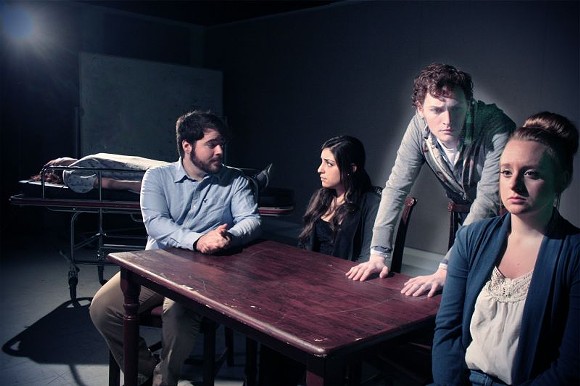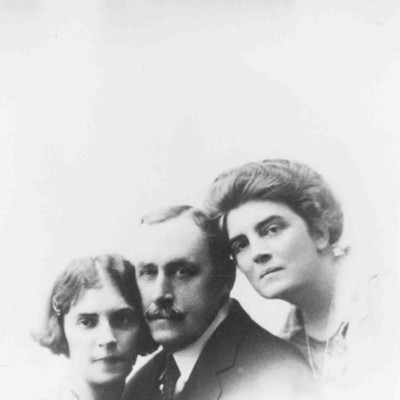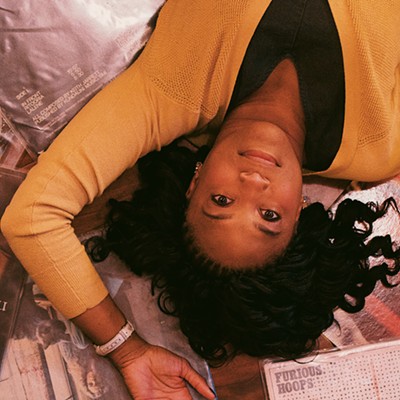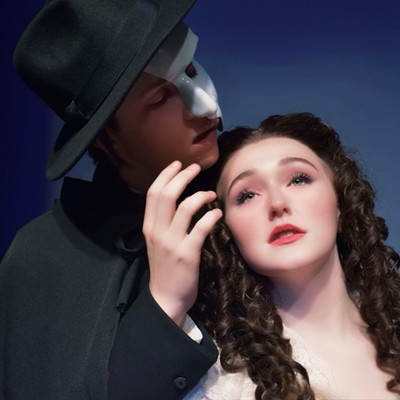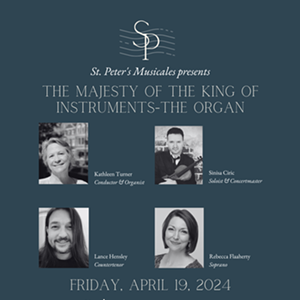It may seem unusual to tackle some of the most delicate subjects imaginable with a backbeat and electric guitars, but musical sensation Next To Normal takes bipolar disorder, self-harm, and drug abuse on with grace, elegance, and a little rock 'n' roll.
Armstrong State University presents the challenging musical this weekend.
Next To Normal debuted Off-Broadway in 2008, opening on Broadway in April 2009. From the start, it was a critical sensation, taking home the Outer Critics’ Circle Award for Outstanding Score, and receiving nominations for Draka Desk Awards for Outstanding Actress (Alice Ripley) and Outstanding Score. Once on Broadway, it was up for 11 Tony Awards, earning Best Original Score, Best Orchestration, and Best Performance by a Leading Actress in a Musical (Ripley again). If that wasn’t enough, Next To Normal earned the 2010 Pulitzer Prize for Drama; it’s only the eighth musical in history to be bestowed the tremendous honor.
“The way this impacts the [Armstrong Theatre] department is in the sense that it gives us one of the rare rock musicals in America that won a Pulitzer,” explains Pam Sears, director. “Exposing students to this quality of book and writing—not just students, but the community, as well—will allow us to push the envelope a little bit.”
Sears “adores this show,” having read the book years ago and fallen in love with the depth of the characters.
“I revisited it last year and it has such a strong story to take an audience on that I felt like the community, as well as students, deserve the opportunity to experience what all the critical acclaim was about,” she says.
Next To Normal introduces the Goodmans, a seemingly normal, if not cliché, suburban family: architect dad, two smart, snarky teenagers, mom running around feeding everyone and keeping house.
But Mrs. Goodman has been struggling with Bipolar I Disorder for 16 years.
Through immersive song and magnetic performances, the audience sees how her diagnosis impacts those around her and the mechanisms of family dynamic.
“While it is a rock opera, because of the heightened emotions, the scenes are written as clearly as a book scene would be because the dialogue is so naturalistic,” Sears explains. “Similarly, the score reflects the journey of the character who has manic depression, so the music goes from pulsing, intense highs like a manic-depressive would have to these ballads that are just beautiful and eerie. It’s structurally reflective of the emotional state.”
A six-piece orchestra, comprised of a Armstrong music majors and community members, brings the iconic book to life. The cast is a made up of a range of Armstrong students, including several senior theatre majors, sophomores, and juniors.
Sears is particularly excited to debut the set design.
“Scenic designer and faculty member John Wright designed the set,” she says. “It’s essentially a house falling in on itself. The point of the story is that illness affects the sufferer, but also everyone in their lives. What the audience witnesses is the journey of the mother trying to cope with her disease and come out of it while, at the same time, show how everyone else is being affected by it. There’s that woven support system, so the set is shown as how that is all imploding.”
“It isn’t tied up in a bow, and it’s not a feel-good musical, but a feel-everything musical,” Sears observes. “The writing is so brilliant...we have the opportunity with this show to connect with the characters and how we see ourselves in them.”
Jeanne McGowan, director of the Armstrong Counseling Center, will lead a post-show talkback to discuss themes and issues within the play.
“She’ll be there to discuss any reactions the audience may have going through the show or have experienced in the show,” says Sears. “We’d like a counselor to be available to navigate that discussion, given we aren’t trained in that area.”
Sears advises that the material is best suited for teenagers and adults. She feels strongly that everyone can take something away from this stirring piece of art.
“The poetry within it, the rock music rearing the intensity of the emotion—it’s a brutally honest, but emotionally enjoyable roller coaster,” she says.

